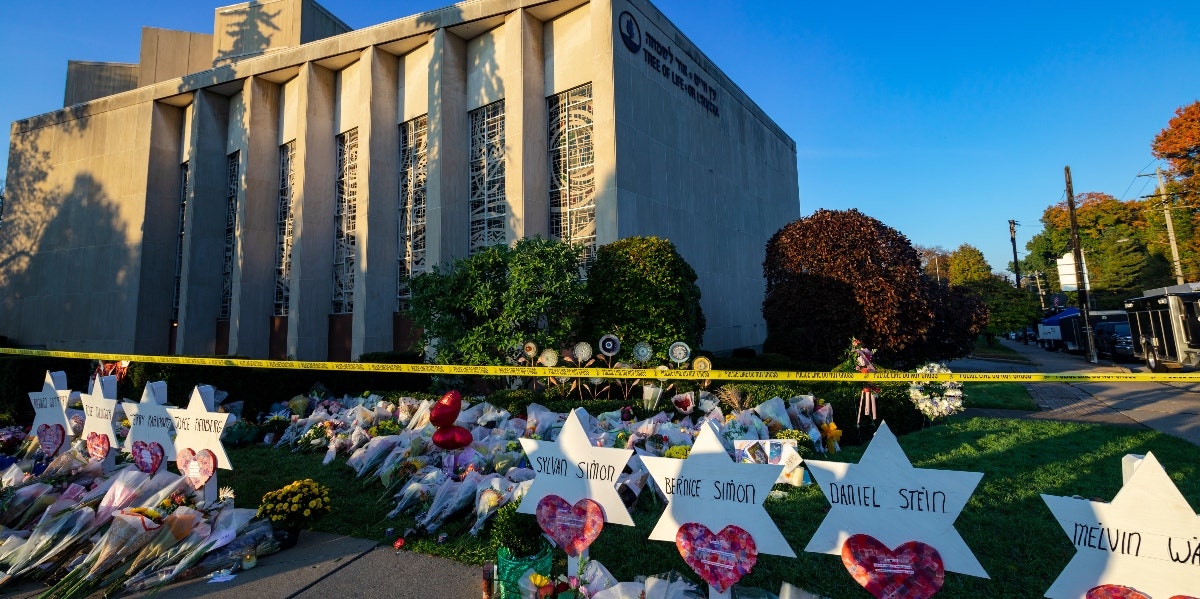
Why are we ignoring antisemitism?
By Alice Kelly — Written on Sep 07, 2021
Photo: Brendt A Petersen / Shutterstock

The release of the FBI’s 2020 hate crime report has revealed the persistence of antisemitism in the US.
As Jews continue to be left out of social justice movements that seek to address and prevent racial, ethnic and religious discrimination — the stark figures display the grim effects of this exclusion.
The FBI’s hate crime report showed Jews are targeted at disturbingly high rates.
Jews in America were the target of 58% of all religiously motivated hate crimes in 2020.
Despite only making up 2% of the population, Jews were more targeted than any other religious group.
RELATED: To My Antisemitic, Woman-Hating Bully: You're Evil And Sad
Out of all groups, Jews are the third highest target of hate crimes, are only anti-Black, anti-White, and anti-LGBT attacks.
.@cnn super weird how your article covering the FBI’s 2020 hate crime stats doesn’t even so much as mention the word antisemitism https://t.co/2tTxQyQIhM https://t.co/2b4KtFbFf1
— Ashley (@ashleyblair21) August 31, 2021
The year marked the highest number of reported hate crimes in over a decade with Jews making up 9% of all reported targets.
Yet, as the report circulated around news outlets after it’s release, several reports contained not a single mention of the anti-Jewish incidents recorded by the FBI.
Jews have been left out of progressive anti-discrimination movements.
The phenomenon of overlooking anti-Jewish discrimination is nothing new. It is a practice as old as antisemitism itself.
Jews often address this issue, seemingly shouting into the void. It was the topic of David Baddiel’s critique of identity politics’ exclusion of Jews, titled “Jews Don’t Count.”
It has been the issue debated by many opinion pieces — often as letters to the editor rather than full page articles.
RELATED: Why Idaho’s Critical Race Theory Ban Is Just Another Attempt To Protect White Supremacy
But in a year dominated by racial equality movements aimed at protecting Black and Asian communities, why was 2020 another year of overlooked antisemitism?
Antisemitism — both explicit and implicit — has been the backdrop of these movements throughout the past year.
While lawmakers have sought to address the issues of other minority groups, action is rarely taken on the discrimination that impacts the lives of Jewish people.
On the same day that the House of Representatives passed a bill intended to address anti-AAPI hate crimes a mob attacked Jewish diners outside an LA restaurant.
The day President Biden signed that bill into law, videos emerged of a Jewish man being chased by vehicles in a parking lot.
Asian-Americans and Pacific Islanders have valid fears that should be addressed by lawmakers, but what is the job of government if not to protect all citizens at once?
Congress has failed to prevent antisemitism.
Jews will recognize this deliberate ignorance used time and time again by Congress.
Related Stories From YourTango:
In 2018, 11 Jews were killed while praying at a synagogue in Pittsburgh in the bloodiest antisemitic event in U.S. history.
Congress did not take action. The following year, a proposed measure against antisemitism emerged only to be co-opted into a blanket anti-hate bill that aimed to protect several minority groups.
We should know by now that until targeted action is taken to address the specific needs of each vulnerable group, no one is helped.
Calling antisemitism what it is and highlighting the double standard in how other groups are treated is an essential part of advocating for true equality.
RELATED: What The Media Gets Wrong About Anti-Asian Hate
Alice Kelly is a senior news and entertainment editor for YourTango. Based out of Brooklyn, New York, her work covers all things social justice, pop culture, and human interest. Keep up with her Twitter for more.
